All you want to know about TAS is here!
日期:2022-04-12Q: What makes TAS unique?
A: What TAS is committed to is not a purely academic education. Rather, we want to provide children with a community environment that integrates school, family, and society.
We believe that education is not just about the transmission of knowledge, but a system that nurtures the development of the child's body, mind and soul. In such an ecosystem, a child can grow into his/her proper form in the right soil, and at the end of his/her 18th year, he/she will be healthy in body and mind, know right from wrong, accept the consequences of his/her own actions, and be able to positively influence others with his/her life, and ultimately, become a servant-leader.
Q: What is the schedule of a day for TAS students?
A: Students arrive at school by 8:00am and are dismissed at 15:20pm every day. There are eight lessons a day, with a half-hour break in the morning and half-hour in the afternoon. The class teacher usually takes the children outdoors if the weather is good, and with PE, the children spend at least one and a half hours outside the classroom every day. The school also offers a wide variety of after-school services that students can choose from after school.
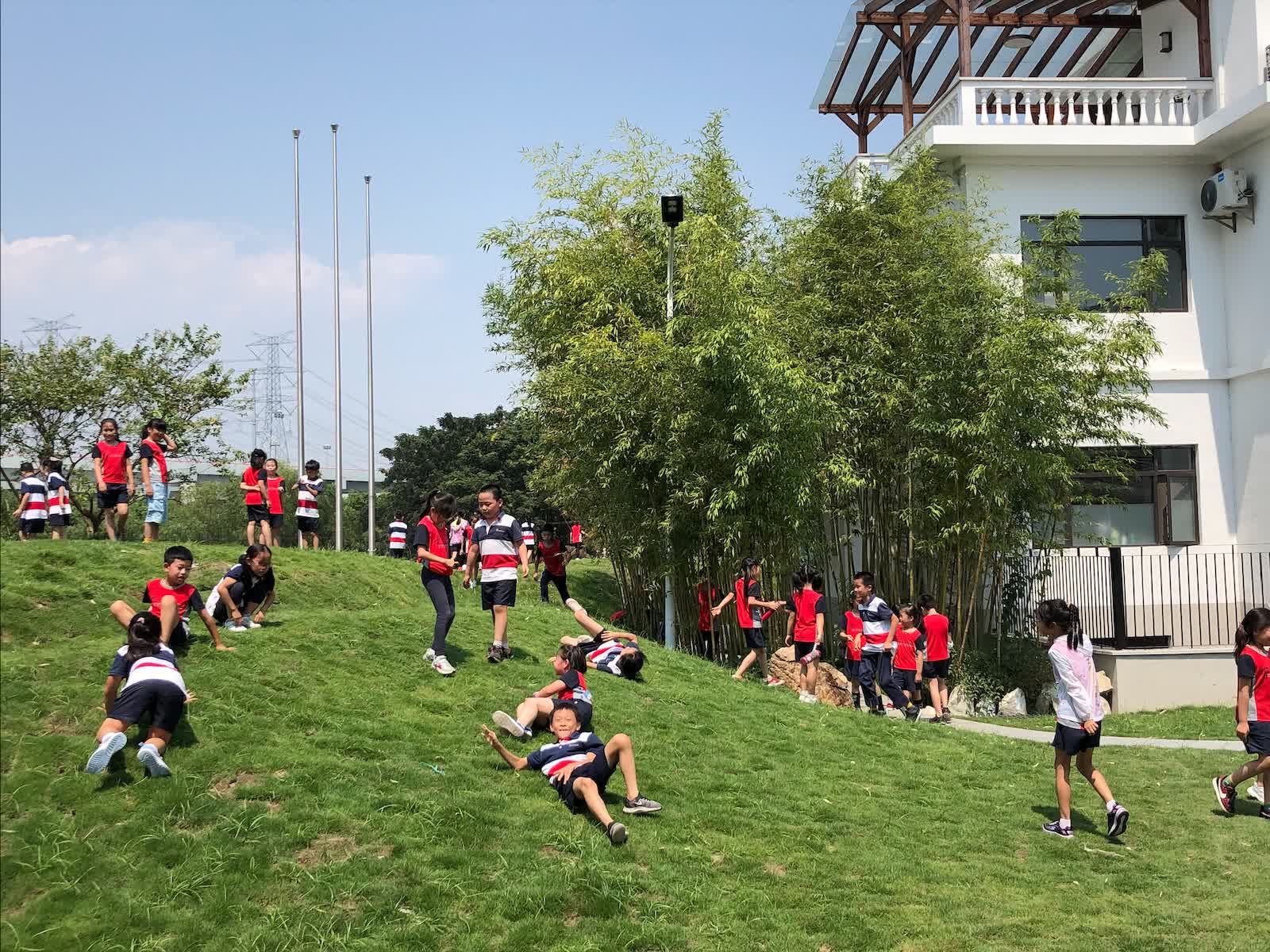
Q: May I ask how many students are in a TAS class? Is it a dual classroom teacher system?
A: The average class size at TAS is 26 students, with small class sizes. Each classroom is approximately 100 square metres in size and is bright and spacious with large windows.
TAS has a dual teacher system, one Chinese teacher and one foreign teacher. The two class teachers lead the classes all day long, and their workstations are located in the classrooms. Every day, they take the children to classes, lunches, outdoor activities, etc. The children can talk to the two class teachers at any time if they have any problems.
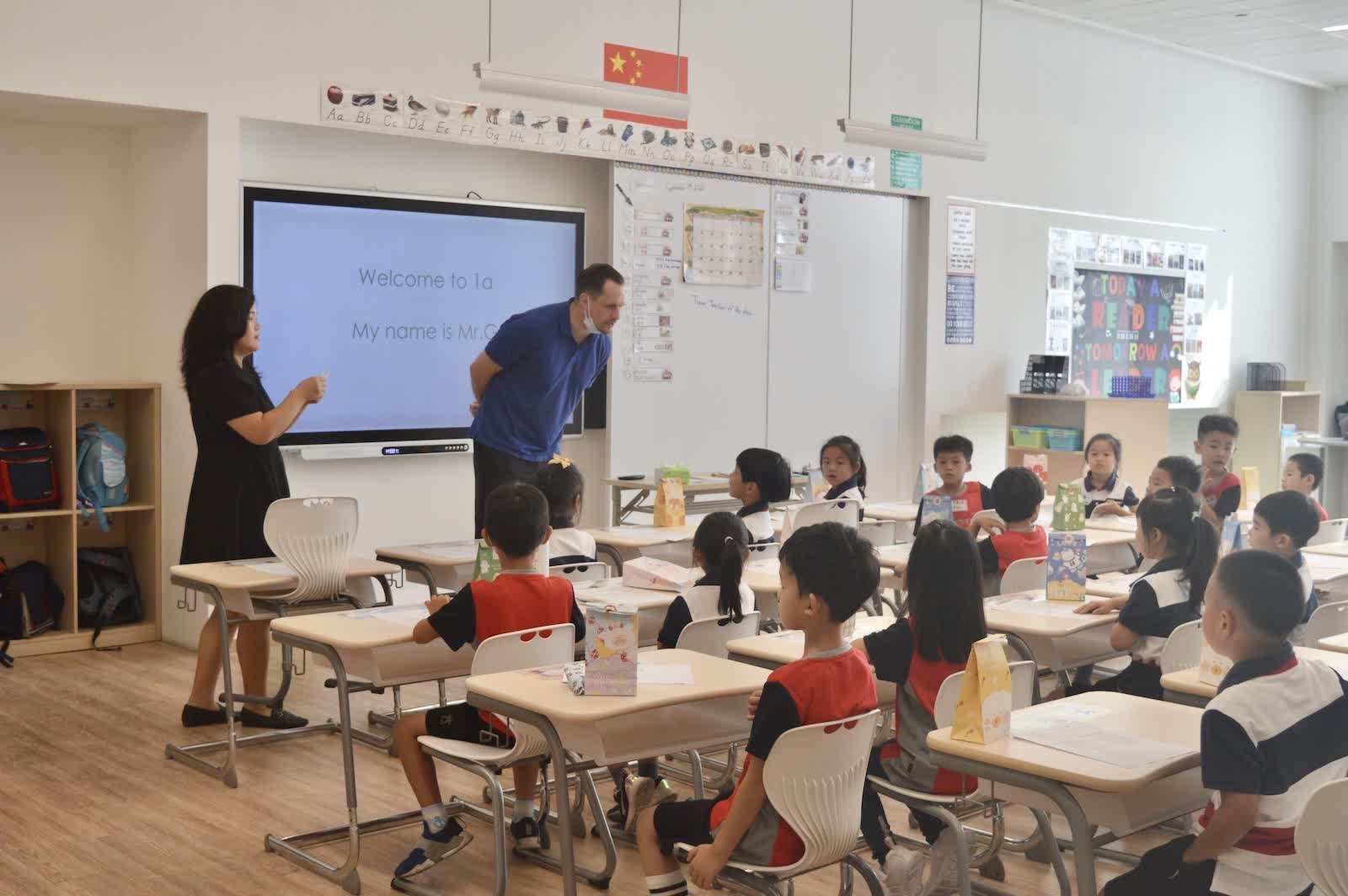
Q: What is the strength of the teachers at TAS? Which subjects are taught in Chinese and which in English?
A: TAS teachers have many years of teaching experience. Our recruitment process ensures that all our teachers have the necessary qualifications, including degrees in relevant fields, professional certificates and teaching experience.
For example, Mr. Xu Jialiang (Shanghai Language Special Teacher and former Deputy Director of the Shanghai Teacher Training Centre) in Languages is TAS's Senior Advisor for Languages and regularly visits the school on a regular weekly basis to mentor teachers in their language teaching. Maths teacher Yin Yaofang, a PhD from HNU, is also a Pudong New Area Subject Leader, a district-level key topic moderator, and the author of several books. She is currently working at TAS as a Maths Curriculum and Teaching Consultant and Maths Teaching and Learning Team Leader. In addition, we have invited a professor from Fudan University as a guest teacher to lead the team of teachers to develop the curriculum content of the Great Humanities System.
Not only are our teachers highly qualified, but they are also committed to the concept of ‘servant leaders’ as outlined in TAS' mission statement. They lead by example, influencing and shaping students, and impacting lives in the TAS educational ecosystem.
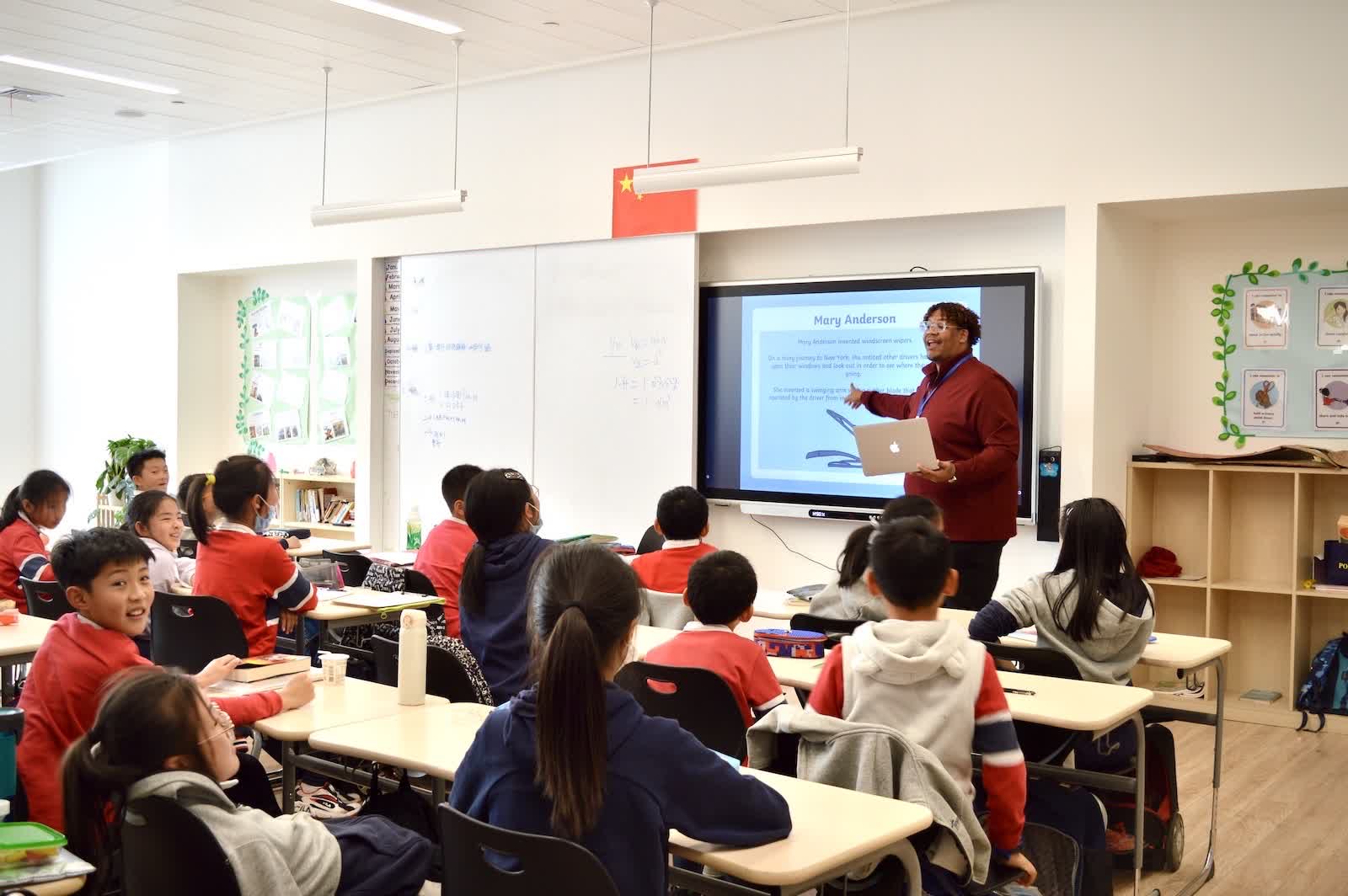
Our foreign teachers are primarily from the United States and Canada and have many years of extensive international teaching experience both at home and abroad. Each teacher at TAS has been brought together from around the globe because of their identification with the mission of TAS and their heart for serving children, and some of our foreign teachers have been teaching at TAS for as long as five or six years.
▲
"I definitely feel the pure love here among students and teachers which is so critical in education. Though I may get a bit more money in other places, I feel like it’s trying to survive in another country, not answering the call from my heart.” A foreign teacher from TAS said so.
▼
TAS's foreign classes include English, social studies, science and character classes, while the Chinese classes are mainly language and maths, with maths including English maths. Chinese and foreign teachers are available for Audio, Physical Education, Arts and After School classes.
Q: What is the amount of homework at TAS Primary?
A: Out of our positive response to the Double Reduction Policy, we do not assign take-home written homework to children in the lower grades. Some of the exercises will be done in school, in order to take the load off of the children so that they can come home and do things they enjoy, such as reading, sports, piano practice, crafts, and so on.
In the upper grades, we will give the children written homework. In addition to the regular assignments, there are many fun assignments, such as maths tabloids, mind maps, language interviews, students will work in groups in teams and make posters together to prepare for presentations, etc. The children are very excited and engaged with these assignments.
Q: How can TAS be updated to teach children with different basic levels of English? How can parents prepare in advance?
A: We adhere to the principle of tailoring teaching to the needs of each student, and will provide appropriate learning support for students with different learning situations. Before enrolling at TAS, parents can help their children familiarise themselves with the basic sounds of the English alphabet. After enrolment, the TAS Learning Centre teachers will provide targeted support to your child. For three months after enrolment, there is a dynamic assessment process to understand how your child is learning and to provide appropriate teaching support.
Q: How does TAS develop children's English and mathematical thinking?
A: In addition to learning the language itself and the culture behind it, a very important part of learning English is thinking in English. The way foreign teachers think, speak and act is a reflection of their English way of thinking. TAS children will be subconsciously influenced by their way of thinking by interacting and spending time with their teachers every day, so they don't need a teacher to specifically talk about what way of thinking this is and what way of thinking that is, after all, primary school children don't really understand it yet.
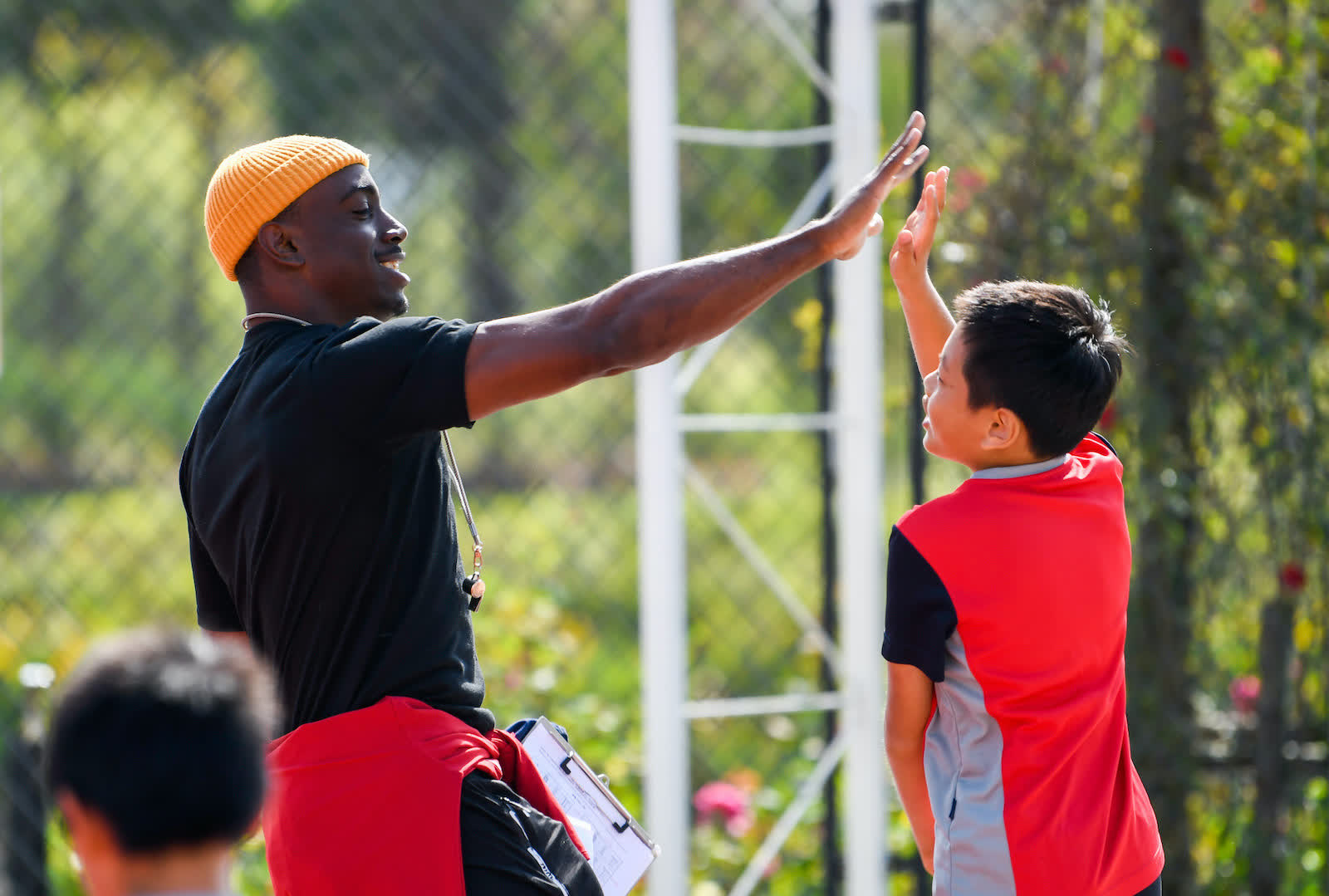
As for the cultivation of mathematical thinking, for children in lower primary school, there is not too much mathematical knowledge, we mainly focus on their interest in mathematics, learning habits and the cultivation of thinking, in which mathematical thinking is very important, equivalent to the foundation of the building. Our teachers will emphasise the way of thinking in their lectures, so that students will not only do problems and brush up on them, but also pay attention to the knowledge behind the questions, the logic of the questions, and how to solve the questions with different ideas, and so on.
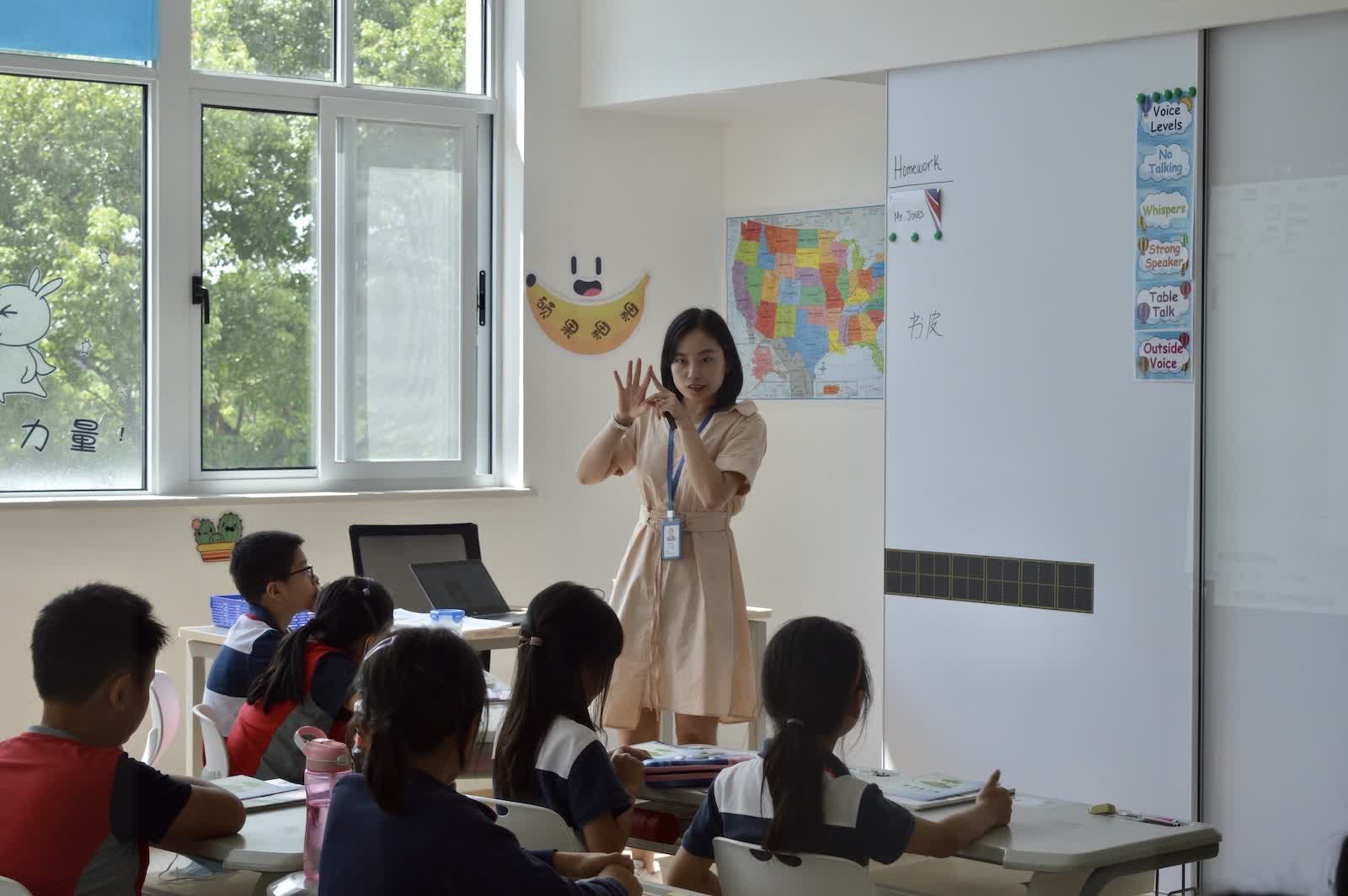
Q: What are the audio-visual and physical education programmes? Does TAS have school teams?
A: TAS's music programme is based on the National Core Arts Standards (NCCAS) and the National Curriculum for Music Education (NCME) of the United Kingdom, and is designed specifically for students. This curriculum system is much higher than the curriculum standards of the second phase of the curriculum reform in China. Students learn singing, general knowledge and appreciation of music, instrumental training (of which the Symphonic Wind Orchestra programme is a special feature of TAS), rhythmic games, and so on.
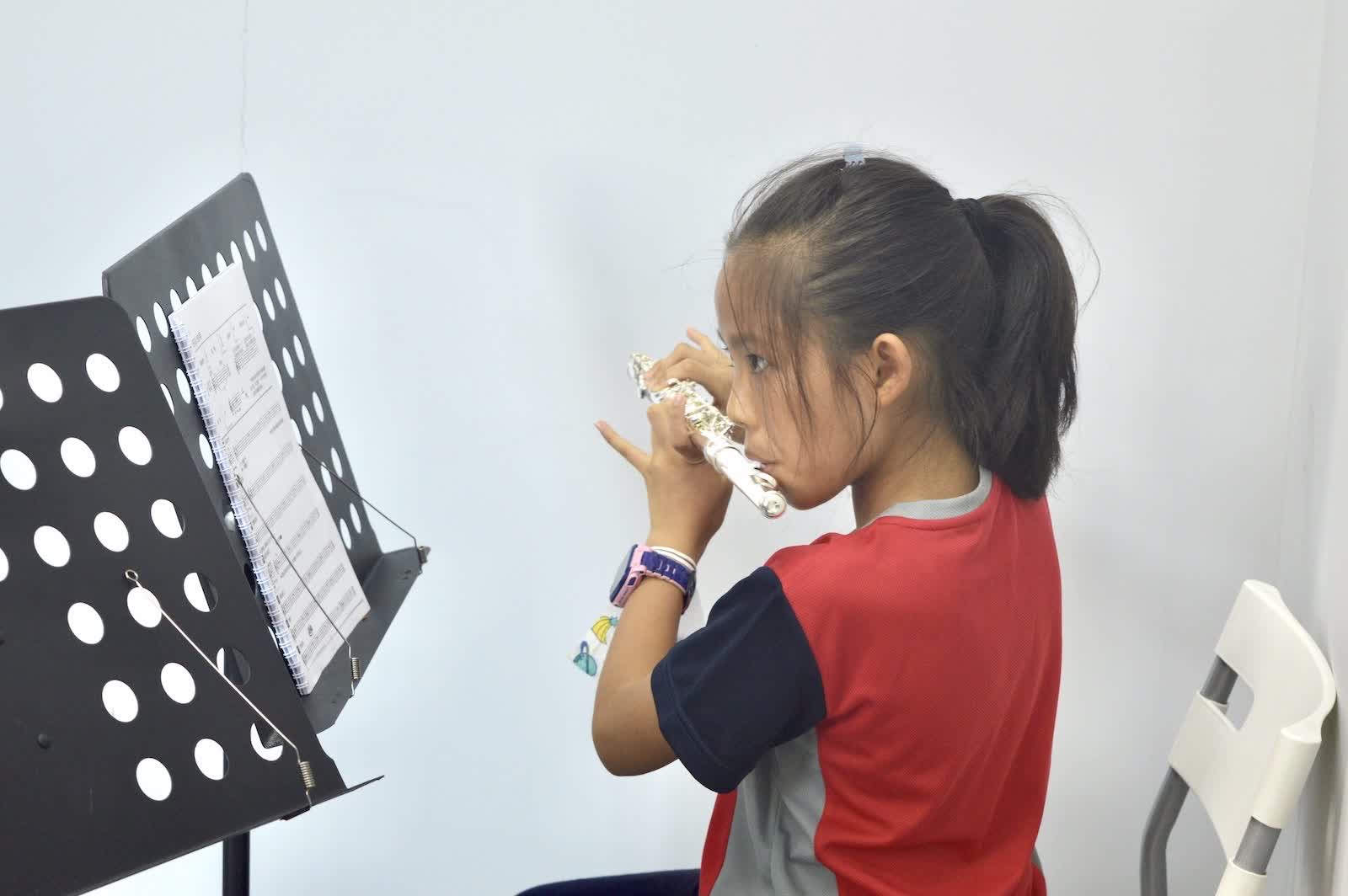
In the physical education programme, in addition to regular physical education classes, TAS also offers specialised physical education classes. TAS students in each grade are exposed to different specialised sports (e.g. basketball, football, etc.) every term to increase their exposure in various aspects. Unicycle, as TAS's specialised PE programme, enables students to promote brain development while exercising, and is widely acclaimed by students and parents.
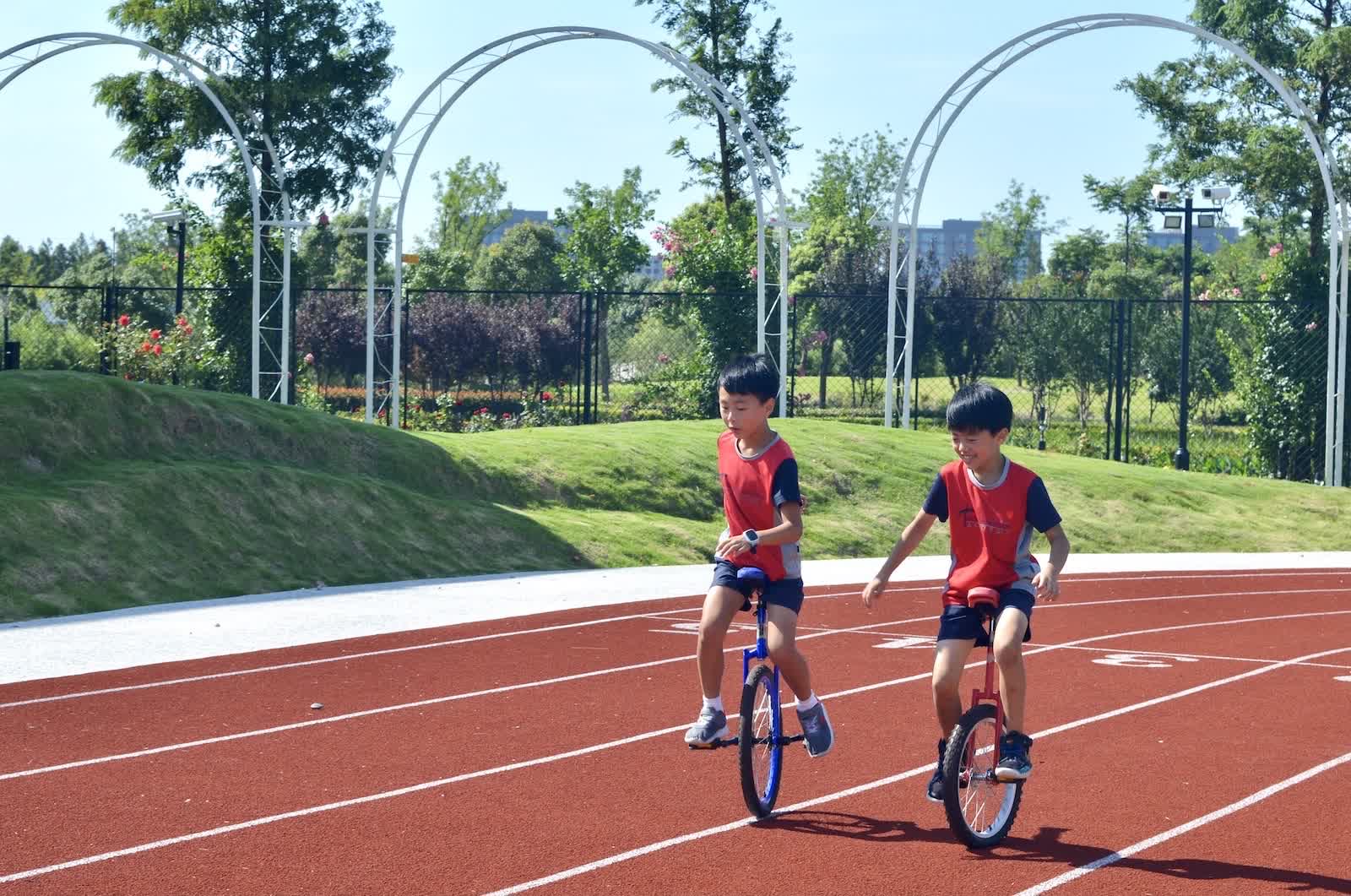
For the art programme, we make reference to overseas K12 visual arts programmes and design several different art areas of study by combining different forms of artistic expression, including the areas of appreciation and creation of celebrity paintings, the cultivation of design thinking and its application, the practice of modelling fundamentals and expression, the exploration of comprehensive painting, and the free creation of thematic content and collaboration.
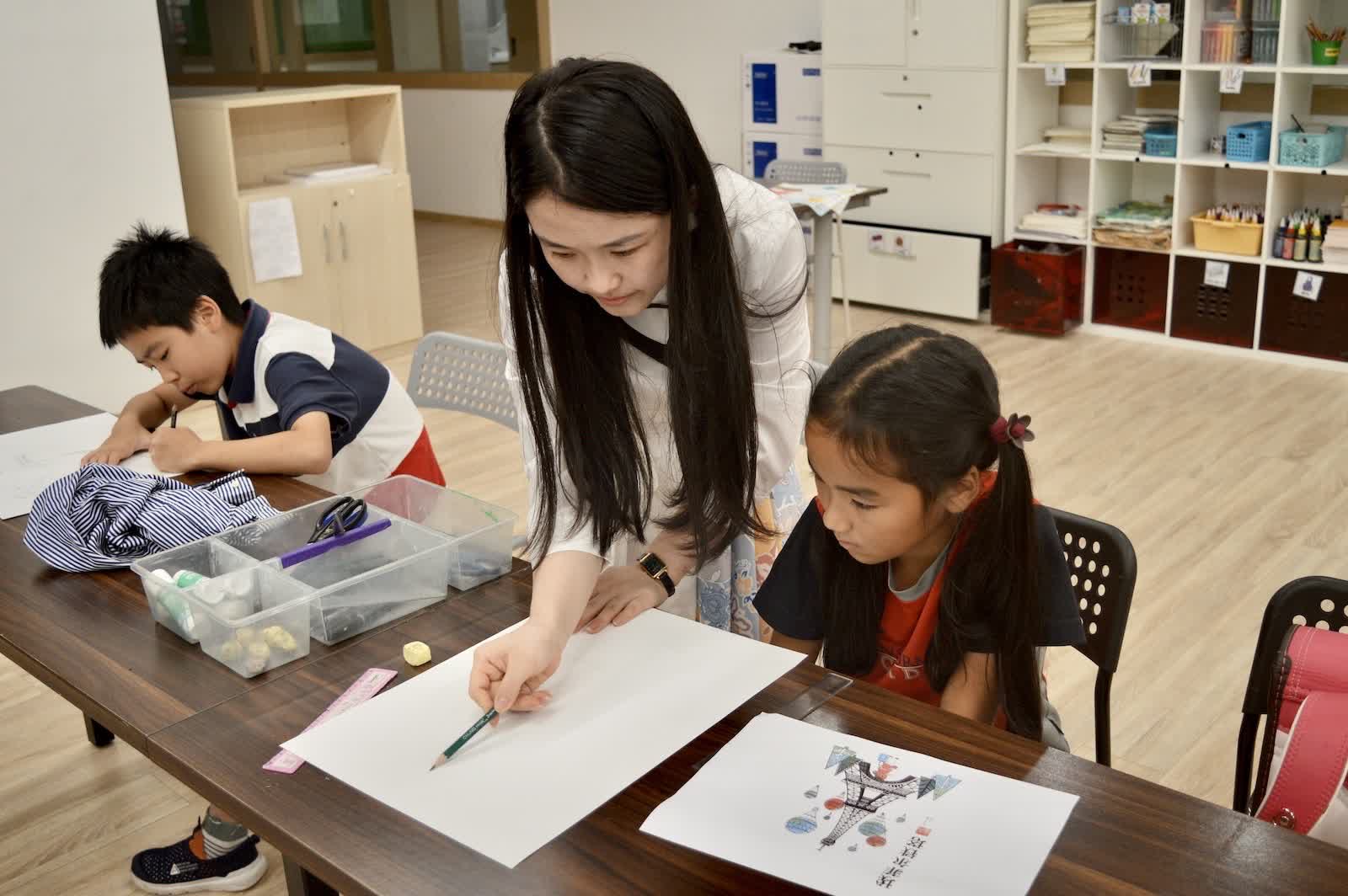
Teachers in our Music, Physical Education and Art programme have professional knowledge of the subject and a wealth of teaching experience. Not only do our teachers provide students with an adequate knowledge base in their specialised areas, but more importantly, they encourage children to try different things in a variety of activities. The school organises a wide range of activities to support the development of the whole child, such as concerts, sports days, Chinese Culture Week, World Art Week, art exhibitions, etc. The school also organises a number of events and activities to support the development of the whole child.
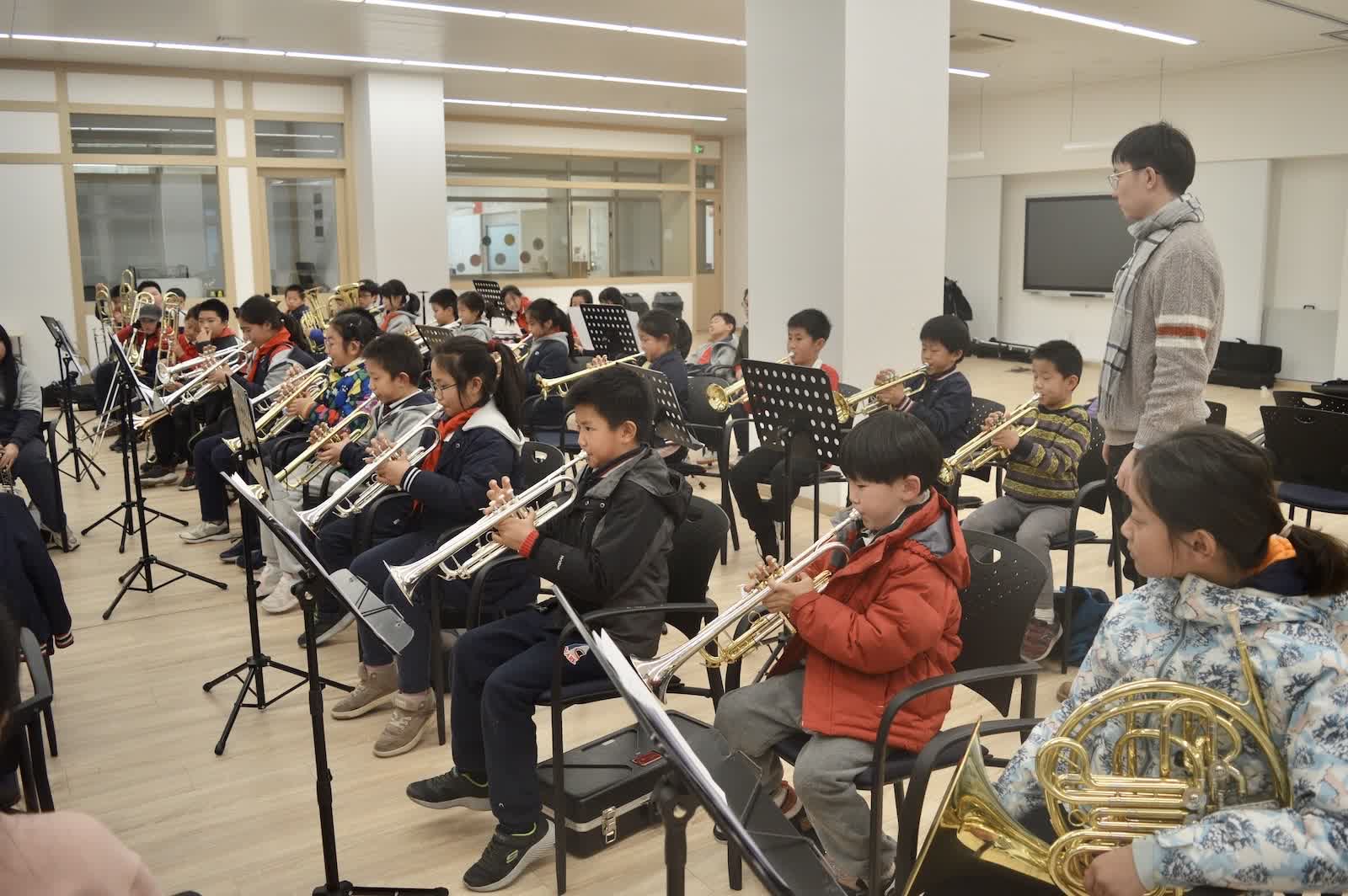
Currently, TAS has the following school teams: Baseball, Basketball, Rugby, Boys‘ Soccer, Girls’ Soccer, and the TAS Symphonic Band. TAS's school teams train regularly under the guidance of professional teachers and participate in various competitions with other schools.
Q: How exactly does TAS training children work?
A: We all know that it is better to teach a man to fish than to teach him to fish. Education, apart from the learning of knowledge, there is also the cultivation of ability. There are many kinds of abilities, for example, the ability to read in English. In TAS, children love to read, and in many places you can see children holding a book and reading it, in the classroom, on the lawn ...... Teachers will lead intensive reading, and also give recommended book lists, from simple ones with lots of pictures, to ones with lots of text and pages. Basically, by 4th or 5th grade, a lot of TAS kids will be reading Harry Potter, 3 million words in a book as thick as a brick. After reading such a large volume of books, a child's reading skills will improve dramatically.
Q: How does the school develop children's critical thinking?
A: At the primary school level, we usually do not directly teach children what critical thinking means, that would be too direct and boring for children to understand.
What we emphasise is to be yourself, to be the best you can be. Every child can have his/her own ideas, and we encourage children to express different opinions and dare to say no. Children can write letters to the headmaster. At the end of the school year, each child has a special award certificate of their own.
Every child is different, some like sports, some like drawing. TAS has always been child-centred, respecting each child's individuality. It's like a hundred flowers blooming in this spring, how boring the world would be if all the flowers were of one shape and one colour.
Q: Where do TAS kids go after graduation? What kind of assistance does the school provide?
A: TAS students stay in TAS to continue their studies, some of them go to public or other bilingual/international schools, and some of them go to overseas countries to continue their studies.
TAS provides our students with professional, systematic and far-reaching study planning (including both domestic and overseas study routes) and personalised academic and career planning oriented to their career development, including daily academic profile building, grade improvement suggestions, exploration of students' interests and potentials, career exploration, analysis of professional potentials, background enhancement, school selection strategies, and application to schools, and so on.
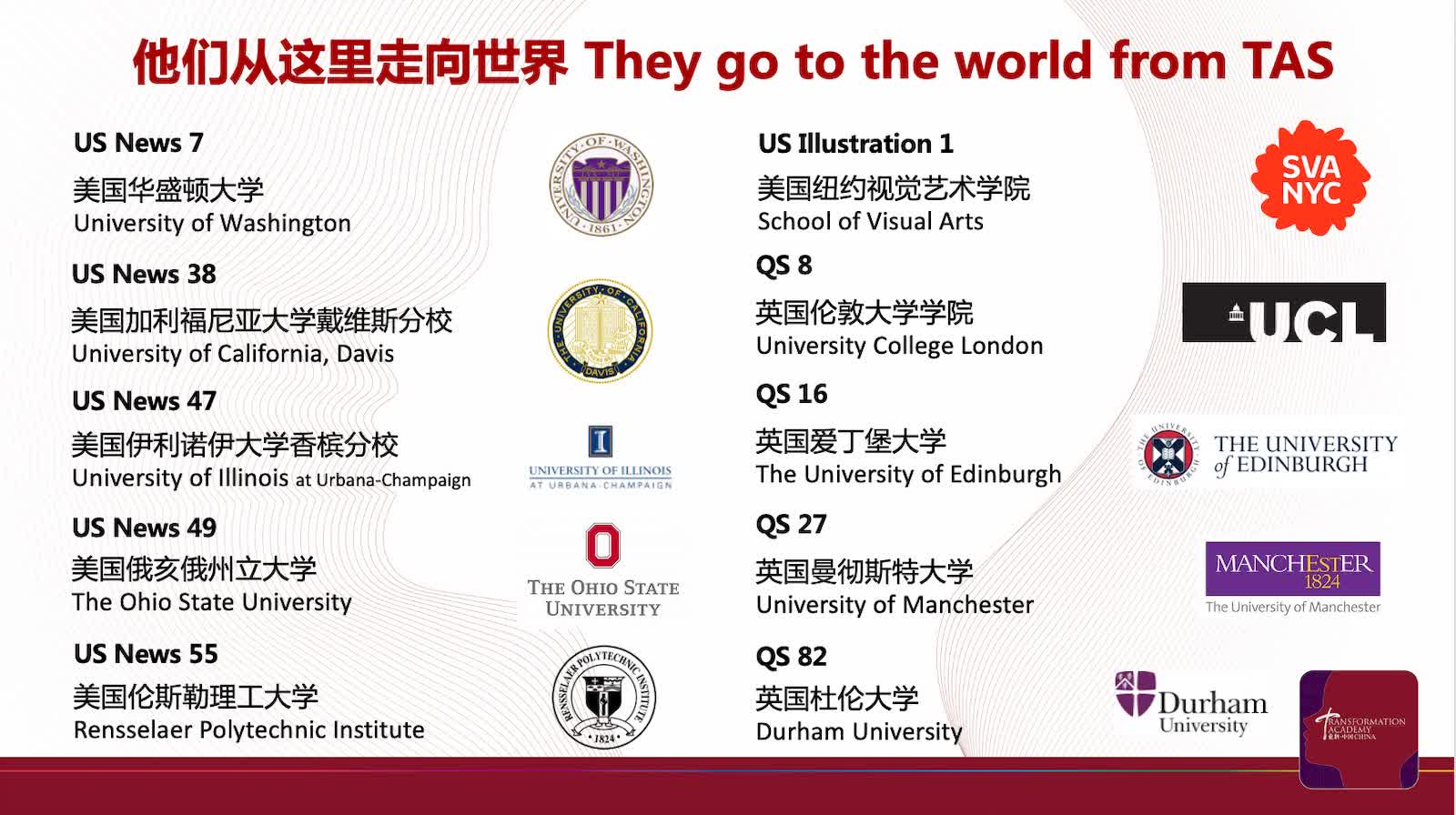
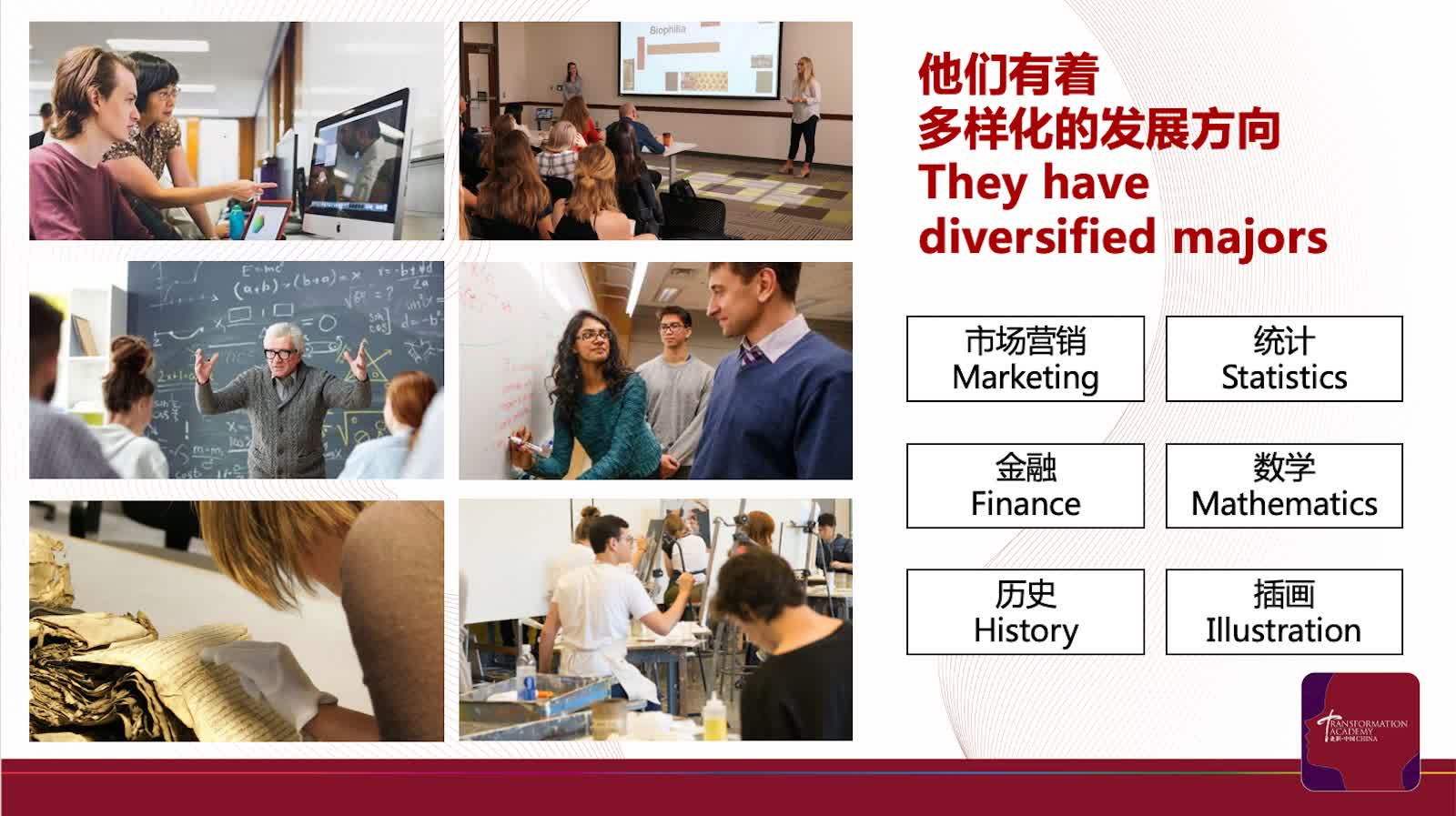
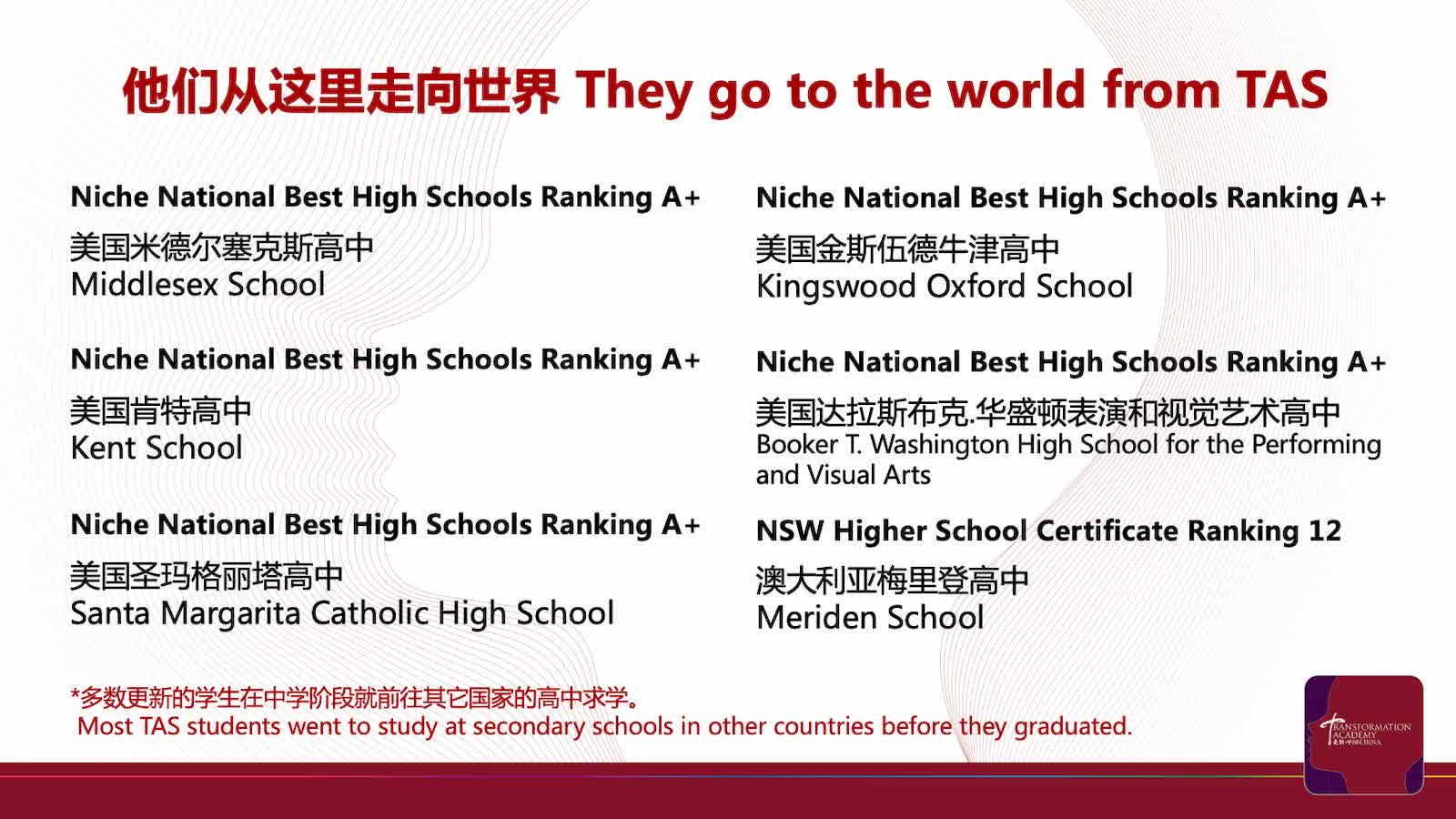
Q: What programs are available in TAS's after-school services?
A: Our after-school service has more than 40 programmes including Brain Power, Sports, Art, Music, Professional and Language.
Brain Power: Rubik's Cube, Chess, Origami, Dominoes, Insects, etc.; Sports: Unicycle, Rope Skipping, Cheerleading, Soccer, Basketball, Baseball, Inline Skating, Flag Rugby, Table Tennis, Golf, Physical Fitness Training, etc.; Arts: Comprehensive Painting, History of Chinese and Western Art, Gemstone Appreciation, etc.; Music: Wind Instrumental Music, Violin, Jazz Drums, Chorus, Musical Theatre, etc.; Professional: Professional Music, Music, Music, Chorus, etc.; Professional: Language, Music, Music, Music, Music, Music, Music: wind instruments, violin, jazz drums, chorus, musical theatre, etc.; Professionals: science, Model United Nations, bridge, humanities, creative writing, etc.; Languages: Japanese, French, Spanish, Hebrew, etc. Some of these classes, such as physical fitness, science, and Spanish, are taught by foreign professors. In addition, we provide homework bar care services for students of different grades, with specialised teachers tutoring students to complete their homework in school.
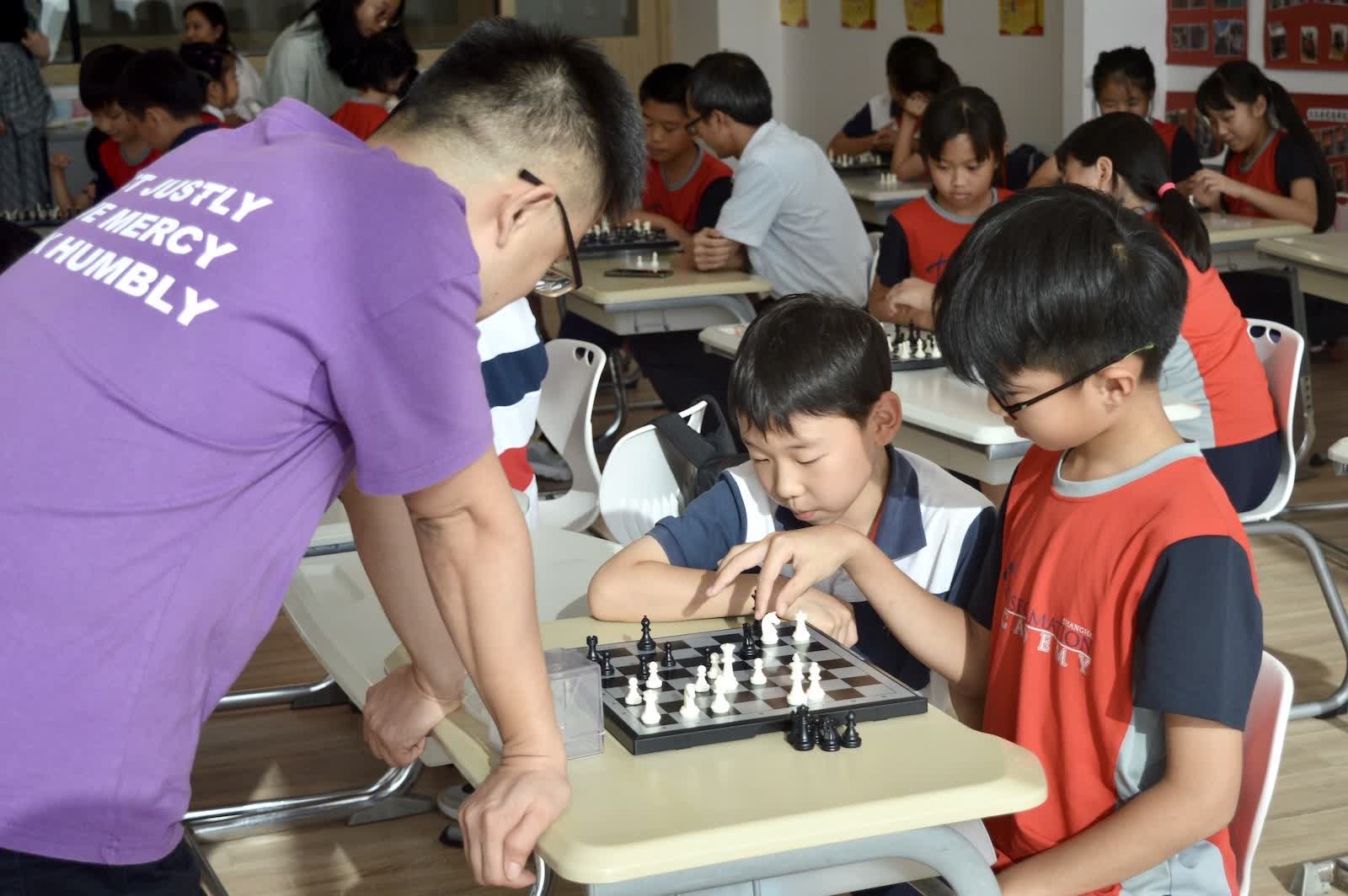
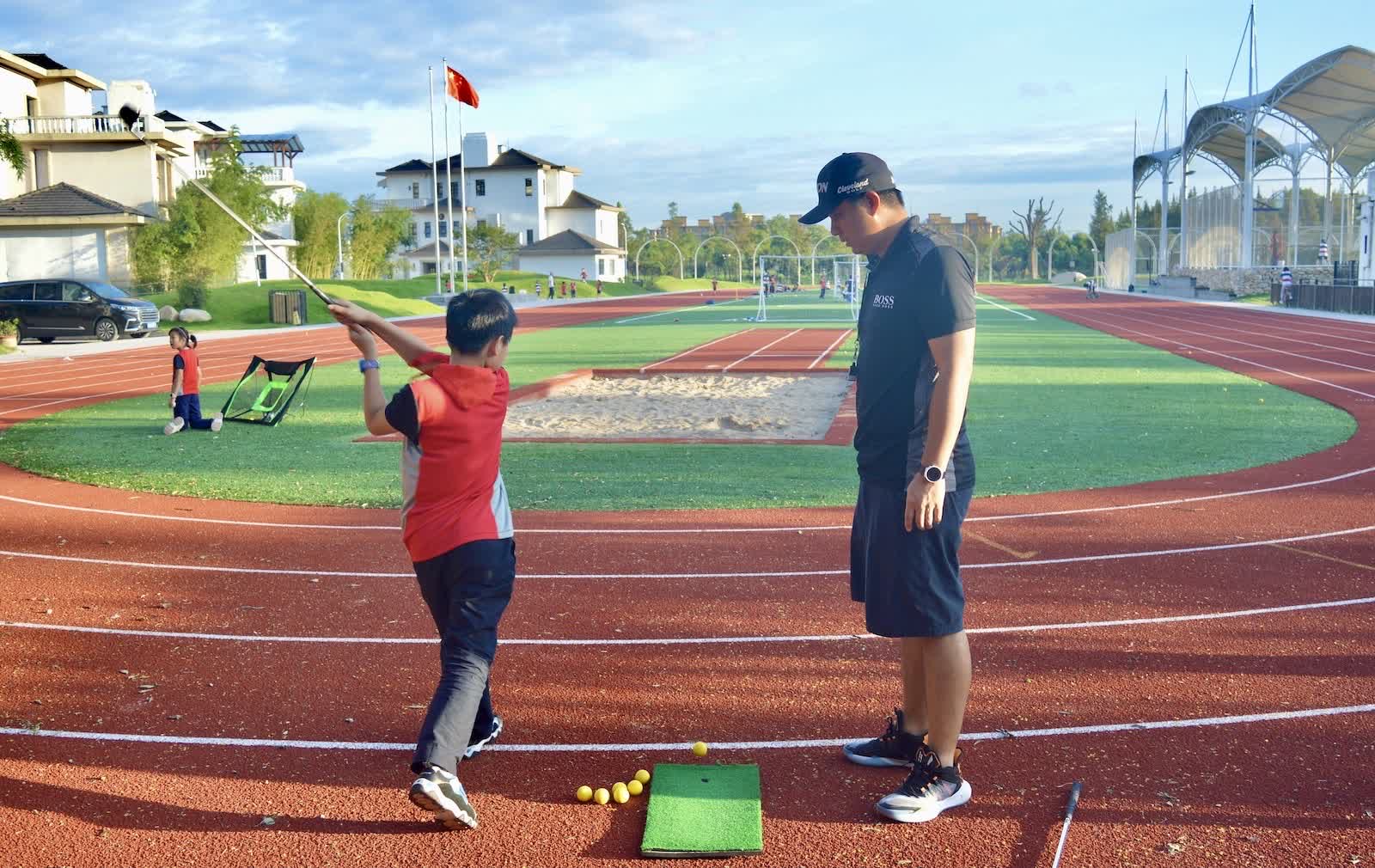
Q: What are the citywide admission requirements for TAS? How do I apply?
A: TAS admits Chinese and foreign students. Non-Pudong students who need to enroll in TAS can apply for admission by applying for a transfer of residence or change of address on their residence permit. You can contact the school's admissions teacher for advice, and pay attention to the admissions brochure posted on the public website.
TAS implements the computerised random allocation admission method stipulated by the Municipal Education Commission. If the number of applicants is less than or equal to the number of enrolment plans, all of them will be admitted; if the number of applicants is greater than the number of enrolment plans, all of them will be admitted by computer random assignment organised by the district education administration.
Q: Does the school have a canteen?
A: TAS's food service team is organised and operated by the school administration, and insists on working around the safety of school food, providing students with nutritious meals and snacks, and is committed to guarding children's nutritional health.
Studies have shown that the dietary structure of most students in China is unreasonable, with less than three food groups a day, insufficient intake of protein, essential fatty acids, and more generally insufficient calcium intake. We hope to provide TAS students with more scientific and healthier catering solutions. With the original intention of doing everything for the children, we insist on operating our own catering team to ensure the healthy growth of TAS students' bodies.

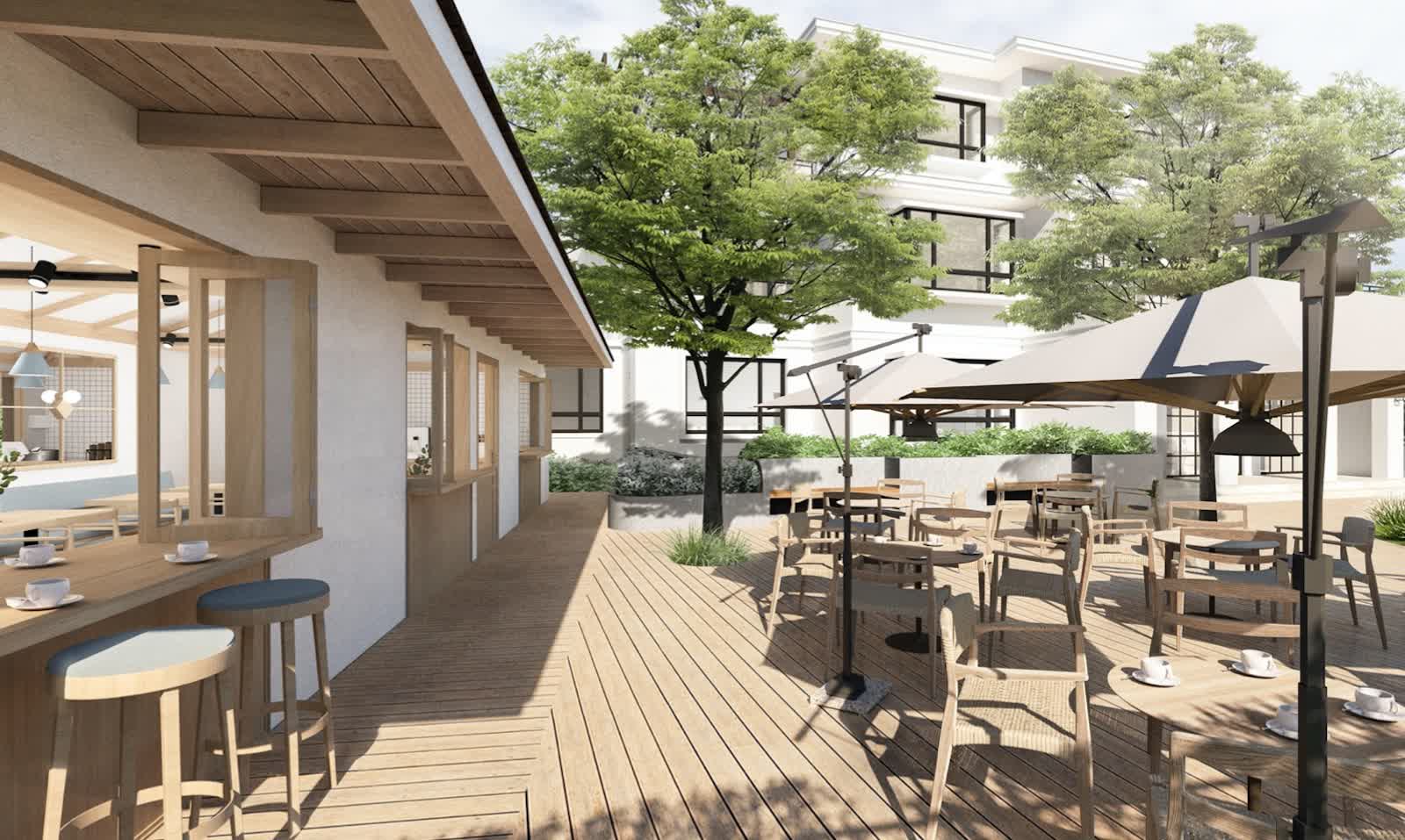
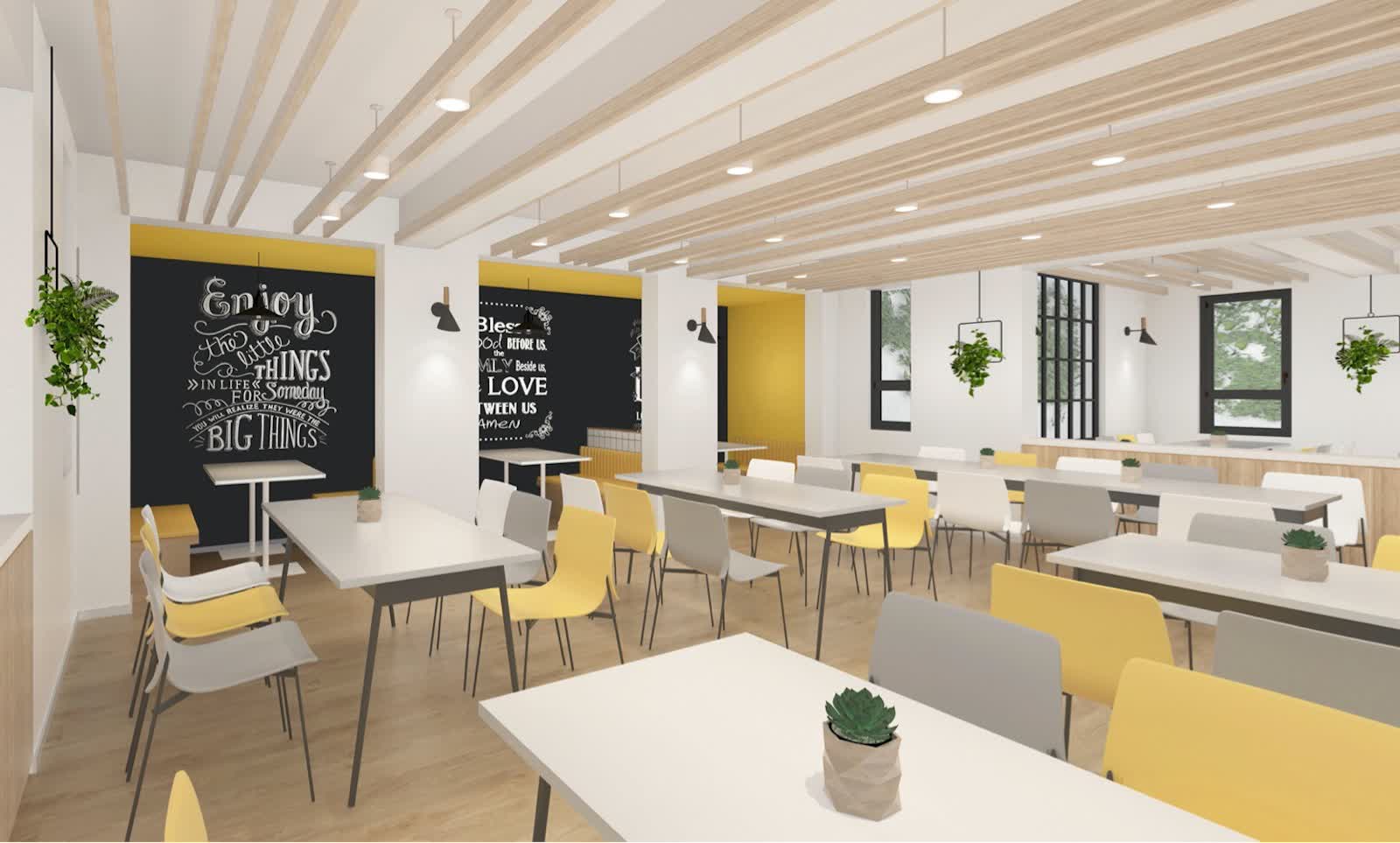
Q: What is the bus route of TAS?
A: We provide daily school bus service for students, with a professional school bus management team, experienced bus drivers and bus aunts. Currently, the bus service covers Pudong New Area and Minhang District (partially).
TAS buses run three times a day, namely.
Morning (school), 15:30 (after school), 17:40 (after school).
The main routes cover the following areas:
Hua Mu Dongxiu Road Hua Mu Road Yinxiao Road area
Minhang Overseas Chinese Town area
Sanlin Yongtai Road Shangbo Road Yuntai Road area
Lianyang Lilac Road Biyun Road area
Zhoukang Kangshen Road Xiuyan Road area
Zhoupu Indigo Road Kangqiao Chuanzhou Highway Area
Zhangjiang Xiangnan Road Gaomuqiao Road Area
Yuqiao Road Yushui Road Area
Chengshan Road Bei'ai Road Pusan Road area
The routes are adjusted every school year according to the actual situation of the students. School bus fees are charged according to the distance travelled.
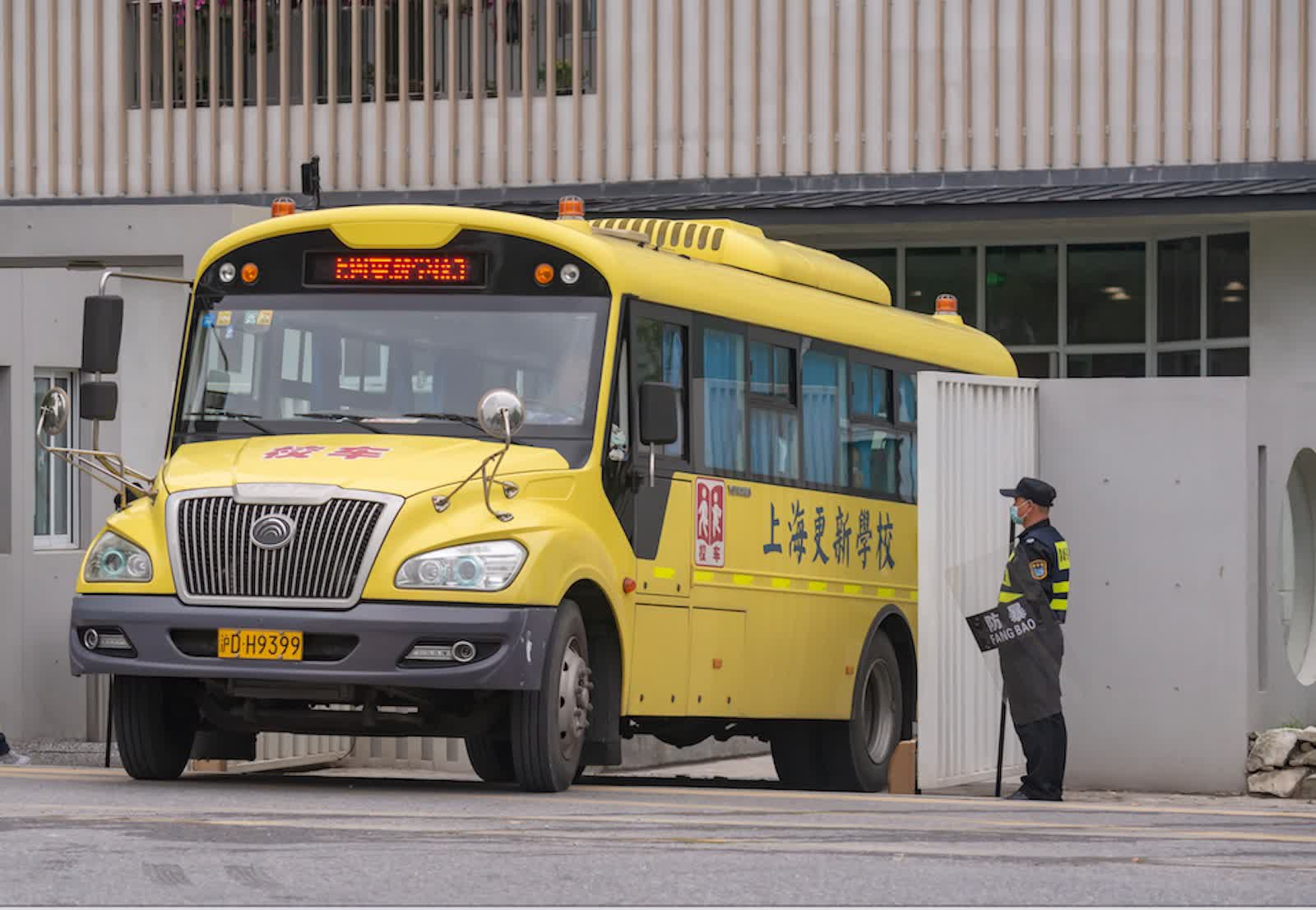




 沪公网安备 31011502019402号
沪公网安备 31011502019402号